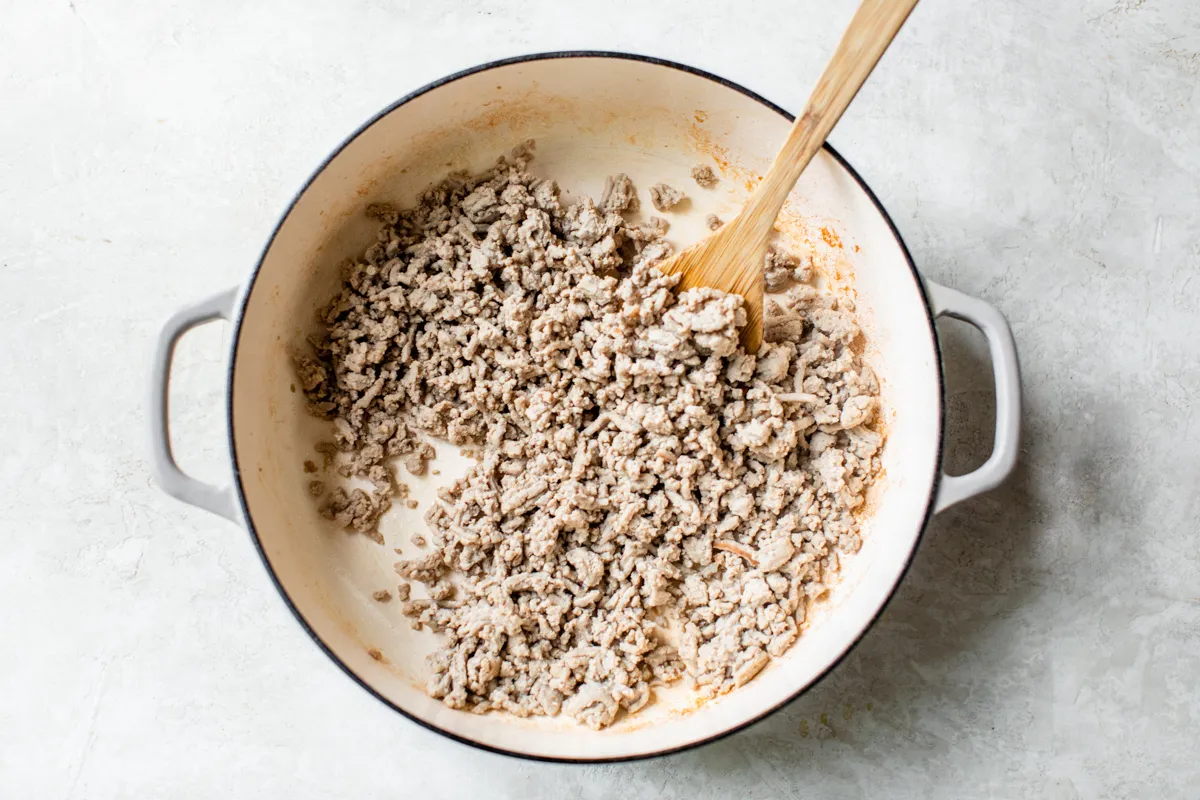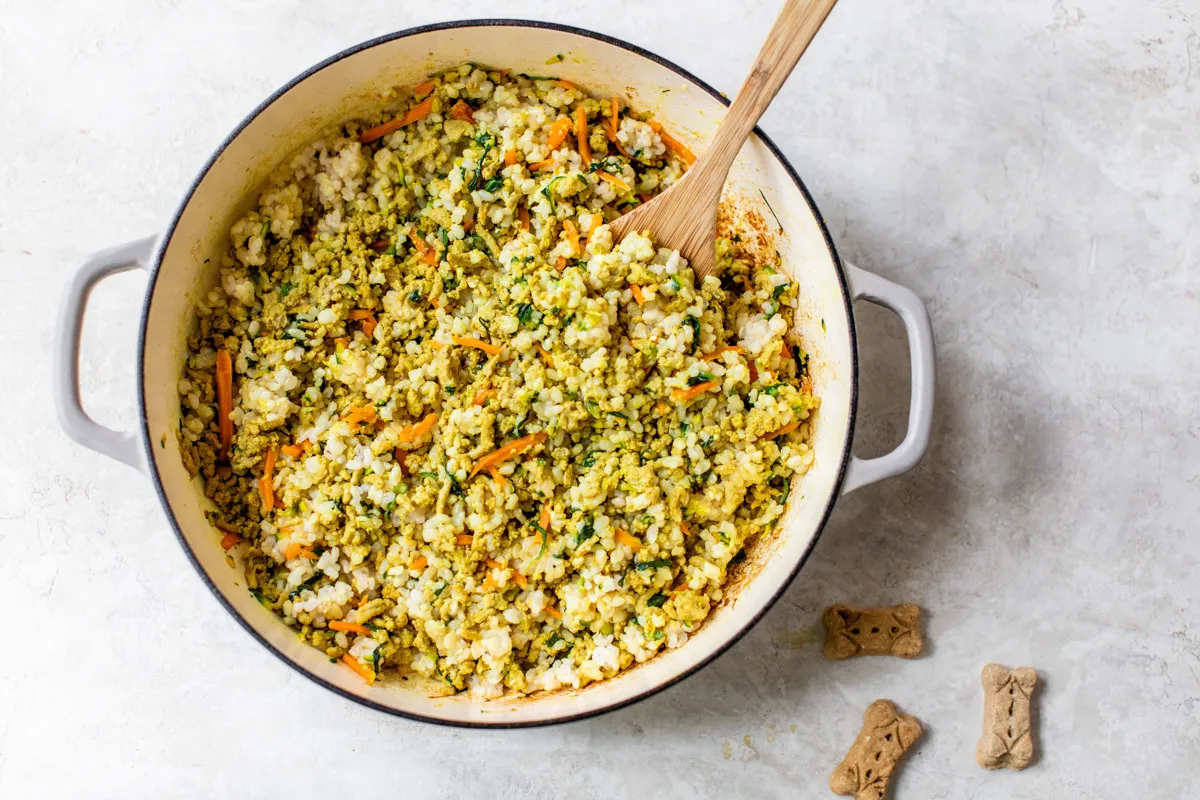Giving your beloved canine companion the best starts with what’s in their bowl. While commercially prepared dog food offers convenience, many pet parents are exploring the benefits of Home Made Dog Food With Turkey to provide fresh, wholesome nutrition. At Dog Care Story, we believe in empowering you with the knowledge to make informed decisions for your furry family members, and preparing meals from scratch is a wonderfully rewarding way to do just that.
Just like us, dogs thrive on real, unprocessed ingredients. When you make your dog’s food, you control every component, ensuring they get a balanced diet free from artificial additives, fillers, and unknown preservatives. Our goal is to share a simple yet comprehensive guide to making a delicious and healthy turkey-based meal right in your own kitchen. This recipe is designed to be easy to follow, making it accessible for any dog owner who wants to enhance their pup’s diet with fresh ingredients.
The Benefits of Homemade Dog Food for Your Canine Companion
Switching to homemade dog food offers several advantages for your pet’s health and well-being. Firstly, it allows for complete transparency about what your dog is consuming. You can select high-quality, human-grade ingredients, ensuring freshness and purity. This control is especially beneficial for dogs with sensitivities or allergies, as you can easily avoid specific ingredients that might trigger adverse reactions.
Moreover, a diet of home made dog food with turkey can lead to improved digestion due to the absence of complex fillers and by-products often found in commercial kibble. Many pet parents report seeing healthier coats, increased energy levels, better weight management, and even improved dental health when their dogs eat fresh, balanced meals. The palatability of homemade food is often much higher, meaning even picky eaters might look forward to mealtime more. It’s also an excellent way to supplement your dog’s diet with specific nutrients or to introduce variety into their routine. For a deeper dive into safe human foods, explore our guide on what human foods are best for dogs.
Why Turkey is a Great Choice for Your Dog’s Diet
Turkey is an excellent lean protein source for dogs, making it a fantastic base for home made dog food with turkey. It’s easily digestible and generally well-tolerated by most dogs, including those with sensitive stomachs or food allergies to other common proteins like chicken or beef. High in protein, turkey supports muscle development, tissue repair, and overall energy levels, keeping your dog active and strong.
Beyond protein, turkey provides essential amino acids and vital nutrients such as B vitamins (B3, B6, B12), phosphorus, and selenium. These contribute to nerve function, red blood cell production, and a healthy immune system. Its lower fat content compared to some other meats can also be beneficial for dogs prone to weight gain or those requiring a more controlled fat intake. Using ground turkey specifically ensures even cooking and easy mixing with other ingredients, creating a consistent texture that most dogs find appealing.
Key Ingredients for Your Homemade Turkey Dog Food
Creating a balanced home made dog food with turkey involves more than just meat. A variety of ingredients provides the necessary protein, carbohydrates, healthy fats, vitamins, and minerals your dog needs. According to the American Kennel Club (AKC) and the Association of American Feed Control Officials (AAFCO), a balanced canine diet includes these core components.
Ground Turkey
As our primary protein, lean ground turkey provides the essential amino acids crucial for muscle maintenance and overall vitality. It’s a gentle option for many dogs and a fantastic foundation for a nutritious meal.
Wholesome Vegetables
Vegetables add fiber, antioxidants, and a host of vitamins and minerals. For this recipe, we use zucchini, spinach, and carrots.
- Zucchini: Low in calories and rich in vitamins C and B6, magnesium, and potassium.
- Spinach: Packed with iron, antioxidants, and vitamins K, A, and C.
- Carrots: Excellent source of beta-carotene (Vitamin A), fiber, and antioxidants.
Always ensure you choose dog-safe vegetables. If you’re unsure about other options, check out our comprehensive list on what foods can dogs have and not have.
Eggs
A cracked egg adds an instant nutritional boost to your dog’s meal. Eggs are highly digestible, gentle on the stomach, and a complete source of protein, offering vitamins D and B12, riboflavin, and selenium. They contribute to a healthy coat and strong bones.
Rice (Brown or White)
Rice serves as a healthy carbohydrate source, providing energy and helping to bind the ingredients together for a consistent texture.
- Brown Rice: Offers more fiber and nutrients, ideal for active dogs.
- White Rice: Easier to digest, often recommended for dogs with sensitive stomachs or during recovery from digestive upset. Choose based on your dog’s specific needs.
Coconut Oil
A small amount of coconut oil introduces healthy fats, which are vital for skin and coat health, digestion, and energy. Many dogs also enjoy its mild, nutty flavor. It contains medium-chain triglycerides (MCTs), which can support brain function.
Turmeric (Optional)
A pinch of turmeric can be a beneficial addition, especially for older or active dogs. Turmeric contains curcumin, a powerful anti-inflammatory compound that may support joint health, reduce inflammation, and boost the immune system. Always use sparingly and mix well.
Important Considerations Before Switching Your Dog’s Diet
Before making any significant changes to your dog’s diet, especially transitioning to home made dog food with turkey, consulting your veterinarian is the most crucial step. Every dog has unique nutritional requirements based on their age, breed, size, activity level, and any underlying health conditions. Your vet can provide personalized guidance, ensure the recipe meets all their dietary needs, and help you transition safely. This consultation ensures that your homemade meals are complete and balanced, preventing any nutritional deficiencies or imbalances that could arise from an improperly formulated diet. For example, specific health issues might require a tailored approach, like understanding what can you feed your dog when they are sick which your vet can advise on.
Remember, this recipe is designed to be a healthy complement to or a well-researched replacement for commercial foods, but it should always be implemented under professional veterinary guidance to confirm it’s suitable for your specific pet.
Step-by-Step Guide to Making Homemade Turkey Dog Food
Making this home made dog food with turkey is a straightforward process that takes about 30 minutes.
 Cooking ground turkey in a pot, key step for home made dog food with turkey
Cooking ground turkey in a pot, key step for home made dog food with turkey
1. Cook the Turkey
Begin by heating a large skillet or pot over medium-high heat. Add a tablespoon of coconut oil, then the pound of ground turkey. Sauté, breaking up the meat as it cooks, until it is thoroughly browned and cooked through. This usually takes about 10 minutes.
2. Add Veggies and Spices
Once the turkey is cooked, reduce the heat to medium. Stir in the shredded zucchini, finely chopped baby spinach, shredded carrots, and a half teaspoon of turmeric (if using). Cook, stirring occasionally, for 5-7 minutes until the vegetables are tender.
3. Incorporate the Egg
Turn off the heat. Crack one egg directly into the hot food in the pot. The residual heat from the cooked ingredients will gently cook the egg as you mix it in. Stir vigorously to ensure the egg is fully incorporated and cooked throughout the mixture.
 Mixing cooked vegetables and turkey with an egg for homemade dog food
Mixing cooked vegetables and turkey with an egg for homemade dog food
4. Mix in the Rice and Serve
Finally, stir in three cups of cooked rice (brown or white, based on your preference). Mix everything until it’s well combined. Allow the mixture to cool completely before serving it to your dog.
Proper Serving Sizes and Storage Tips
Determining the correct serving size for home made dog food with turkey depends on several factors, including your dog’s weight, age, activity level, and metabolism. It’s always best to consult your veterinarian for personalized portion control recommendations. A general guideline is to monitor your dog’s weight and energy levels; they should maintain a healthy weight, be energetic, and eager for their meals. If you notice any changes in their weight or health, adjust portions and consult your vet. For instance, some breeds, like French Bulldogs, may have specific dietary sensitivities, and knowing what foods certain breeds should avoid is crucial.
This recipe yields approximately six cups of food. For a medium-sized dog weighing around 45 pounds, this amount might last about three days. You can easily scale the recipe up or down depending on your dog’s size or if you prefer to cook larger batches less frequently.
Storage Tips:
- Refrigerator: Once cooled, store the homemade dog food in an airtight container in the fridge for up to 5 days.
- Freezer: For longer storage, portion out the food into freezer-safe containers or bags. It can be kept in the freezer for up to 6 months. Thaw overnight in the refrigerator before serving.
Conclusion
Preparing home made dog food with turkey is a wonderful way to show your dog how much you care, offering them fresh, nutritious meals free from unnecessary additives. This simple recipe, packed with lean protein, wholesome vegetables, and healthy carbohydrates, can contribute significantly to your dog’s overall health, energy, and happiness. Remember that while this recipe provides excellent nutrition, every dog is unique, and consulting with your veterinarian before making any major dietary changes is paramount to ensure complete and balanced nutrition tailored to your pet’s specific needs. Give this recipe a try and watch your furry friend thrive on the goodness of home-cooked meals! If you’re interested in exploring more ways to enhance your dog’s diet, consider our articles on human foods dogs can safely eat for other healthy additions.
Recipe Card: 30-Minute Stovetop Homemade Dog Food
Learn how to make nutritious dog food at home. Your furbaby will love their meals, and you’ll love that this recipe for homemade dog food is easy and made with whole-food ingredients you recognize!
Course: Main Meal
Cuisine: American
Author: Dog Care Story Team
Prep Time: 10 minutes
Cook Time: 20 minutes
Total Time: 30 minutes
Servings: 6 cups
Calories: 240kcal per cup (estimated)
Ingredients
- 1 tablespoon coconut oil
- 1 pound ground turkey
- 1 large zucchini, shredded
- 1 cup baby spinach, finely chopped
- 1 cup shredded carrots
- 1/2 teaspoon turmeric (optional)
- 1 egg
- 3 cups cooked rice (brown or white)
Instructions
- Heat a large skillet or pot over medium-high heat. Add in the coconut oil and ground turkey. Sauté until the turkey is browned and cooked through, breaking it apart with a spoon, about 10 minutes.
- Reduce the heat to medium. Stir in the shredded zucchini, finely chopped spinach, shredded carrots, and turmeric (if using). Cook, stirring occasionally, for 5-7 minutes, until the vegetables are tender.
- Turn off the heat. Crack the egg directly into the hot food. Mix it around vigorously to ensure it mixes through and cooks thoroughly from the residual heat.
- Stir in the cooked rice until all ingredients are well combined.
- Allow the homemade dog food to cool completely before serving to your dog.
Notes
Storage Tips:
- Refrigerator: After cooling, store the dog food in an airtight container in the fridge for up to 5 days.
- Freezer: You can freeze your dog’s meals in freezer-safe containers for up to 6 months. Let them thaw in the fridge overnight before serving.
Nutrition (per 1 cup serving, estimated)
- Calories: 240kcal
- Carbohydrates: 26g
- Protein: 22g
- Fat: 5g
- Saturated Fat: 3g
- Polyunsaturated Fat: 1g
- Monounsaturated Fat: 1g
- Trans Fat: 0.02g
- Cholesterol: 69mg
- Sodium: 71mg
- Potassium: 496mg
- Fiber: 3g
- Sugar: 2g
- Vitamin A: 4157IU
- Vitamin C: 9mg
- Calcium: 34mg
- Iron: 2mg
